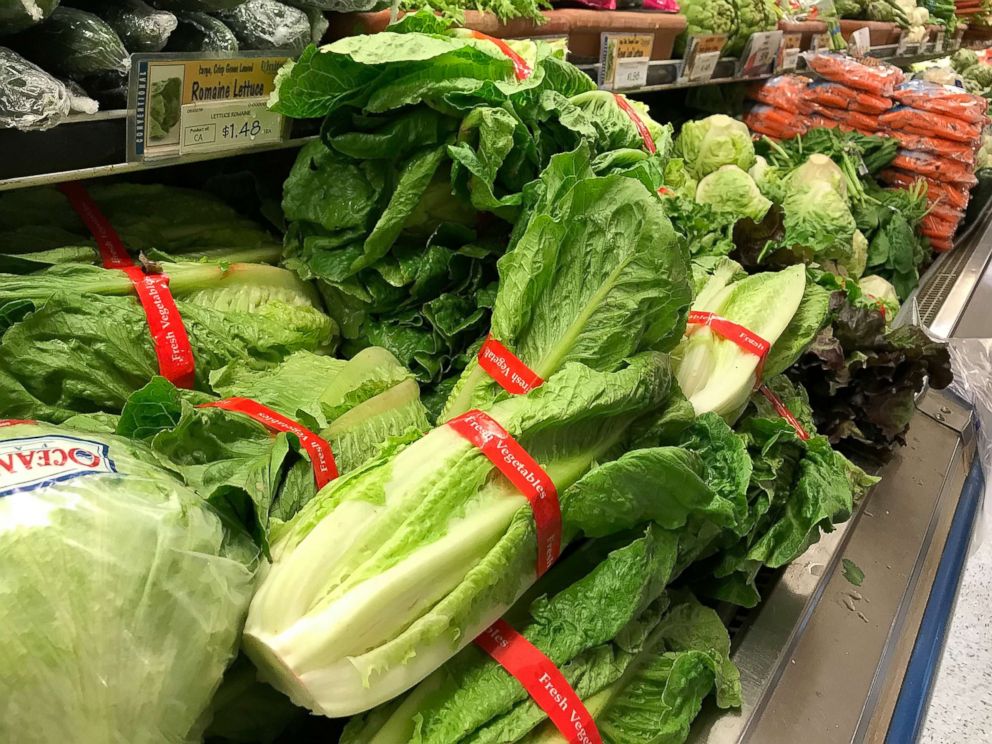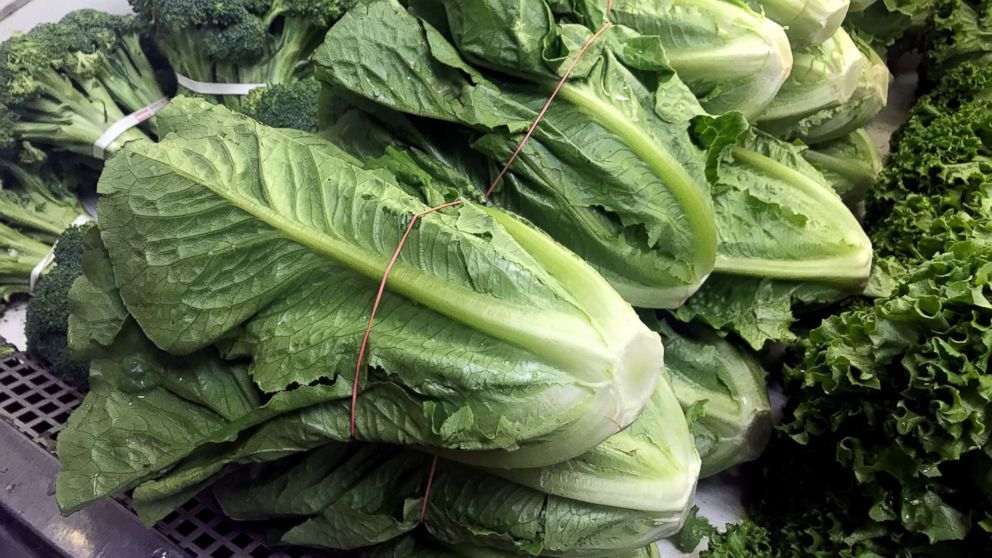[ad_1]
U.S. officials said Thursday they are cautiously optimistic that romaine lettuce tainted with E. coli that prompted a nationwide recall is off the market, but are warning the public to still avoid eating lettuce packed in certain regions of California, or if the origin of their lettuce is unknown.
Interested in Recalls?
Add Recalls as an interest to stay up to date on the latest Recalls news, video, and analysis from ABC News.
There have been 59 people sickened in the past month across 15 states, with 23 people hospitalized, according to the Food and Drug Administration. No deaths linked to the outbreak has been reported.
The FDA and the Centers for Disease Control and Prevention said it was still advising people to avoid lettuce grown in some areas of California: Monterey, San Benito and Santa Barbara counties. Romaine lettuce harvested outside those counties after Nov. 23 doesn’t appear to be related to the current outbreak, officials said. Hydroponically- and greenhouse-grown romaine also doesn’t appear to be related to the current outbreak.
 Justin Sullivan/Getty Images
Justin Sullivan/Getty ImagesOfficials told reporters that one source has been found: a water reservoir on a California farm called Adam Brothers Family Farms. Officials said they believe the E. coli somehow ended up in the water used for irrigation. The farm was fully cooperating with the investigation and hasn’t shipped any lettuce since Nov. 20, FDA and CDC officials said.
The farm did not immediately respond to a request for comment.
“The company has committed to recalling products that may have come into contact with the agricultural water reservoir and we are working with the farm to determine how the contamination occurred and what corrective actions they would need to take before their next growing season,” the FDA said in a statement.
The bacteria on the lettuce is E. coli O157:H7, which is similar to a strain connected to an outbreak in the U.S. this past May. E. coli bacteria produces Shiga toxin, which can be deadly to humans.
[ad_2]
Source link

